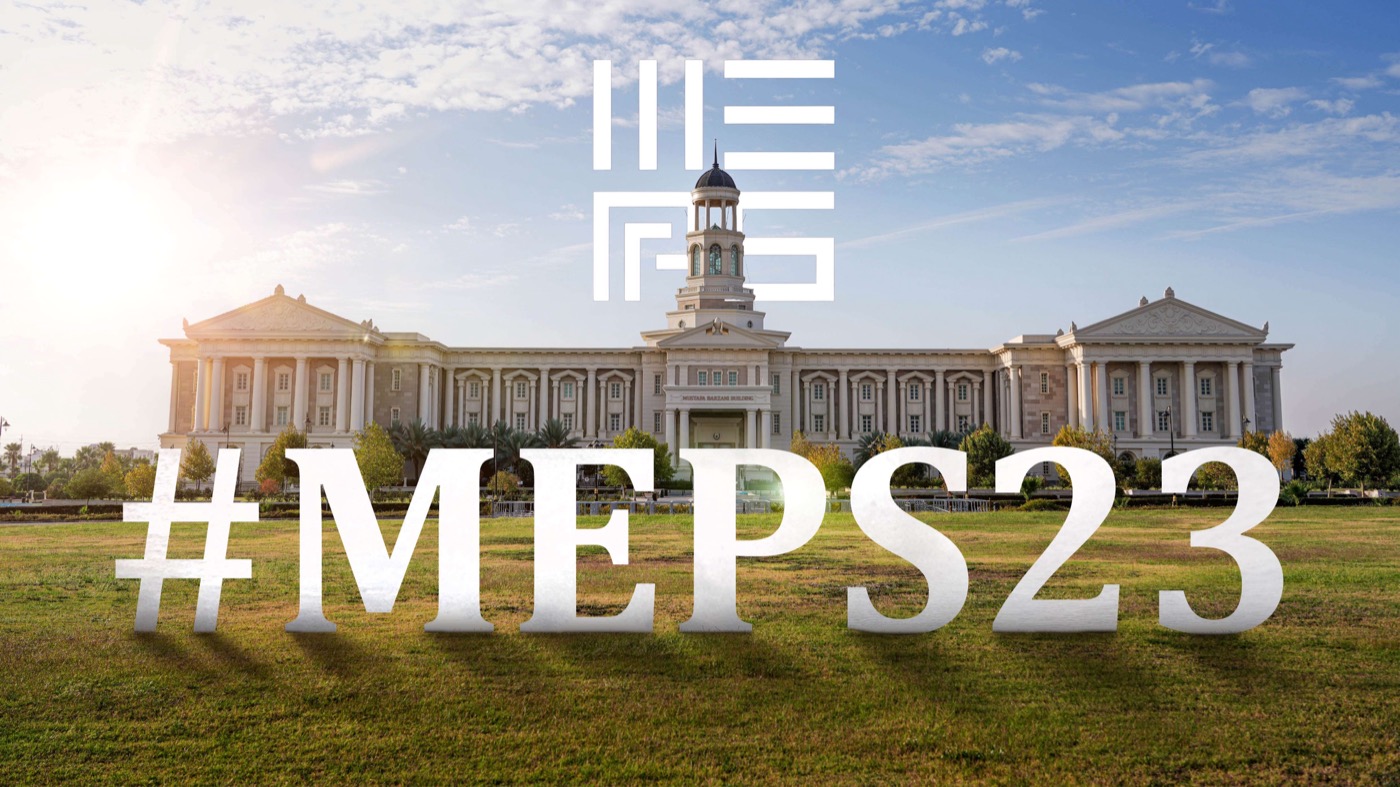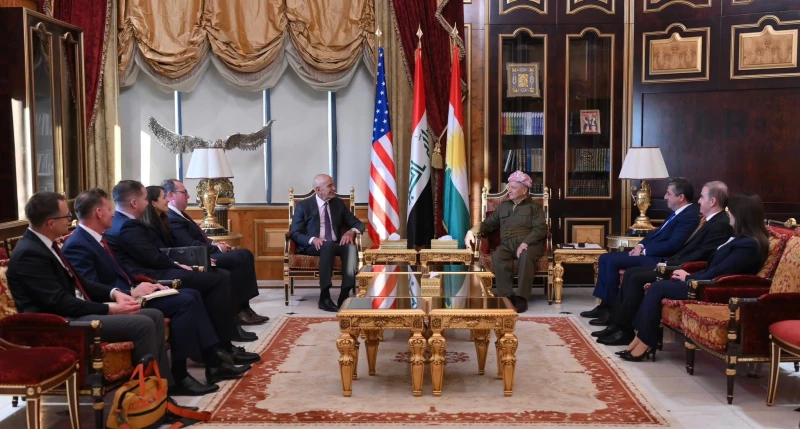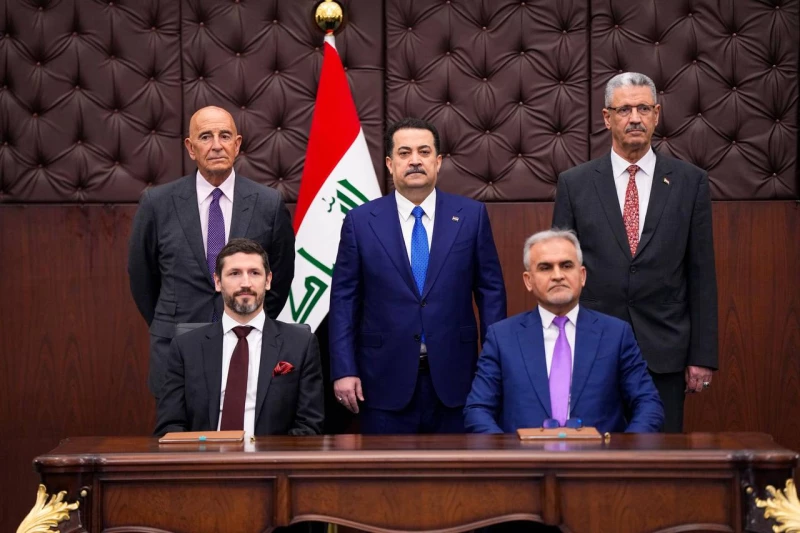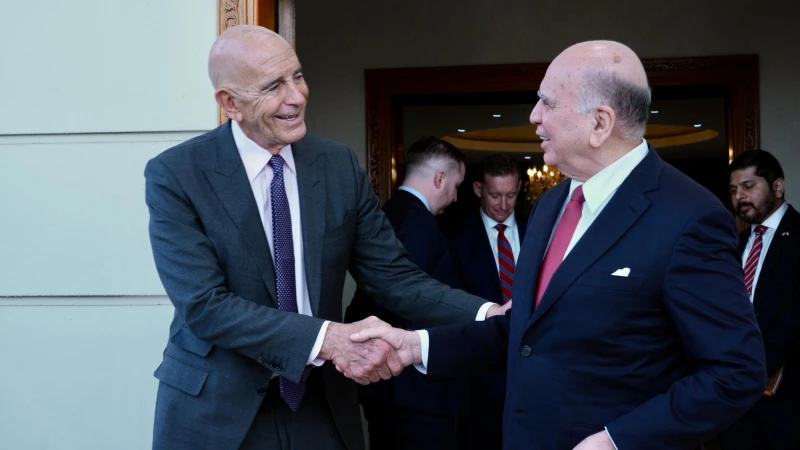DUHOK, Iraq – “Peace needs its architects,” noted one participant of the opening day of the Middle East Peace and Security (MEPS) Forum 2023.
Every year since its founding in 2019, the MEPS Forum has sought to bring together decisionmakers, researchers, and scholars from across the world to discuss the most pressing issues affecting the region.
These discussions, organizers hope, can help in the drafting of policies and plans for the building of a more stable, prosperous Middle East.
As the war in Gaza continues, the talks seem to have greater urgency to them this year.
An increasingly multipolar world, conflict resolution, mediation, armed groups not under state control, the ‘threat’ of China, and the role of Europe in the Middle East were among the topics discussed in panels on the first day of the event, which The New Region attended.
Non-state actors here to stay?
The panels of the first day were held under the Chatham House Rule, according to which speakers cannot be identified directly or indirectly with the statements made in order to ensure greater frankness.
“Once disruptors appear, can we ever really eradicate them?” asked another participant on Sunday, citing the example of the Taliban’s return to power in Afghanistan 20 years after they were defeated.
Comparisons were made to various other non-state actors playing an ever-larger role throughout the region.
One noted that initiatives conducted by Western governments and organizations in the region for such things as youth and women’s empowerment often proved “counterproductive” due to a lack of understanding of the local context.
Yet another asked, “What is the West going to do about the governments being captured by (Iran’s) Islamic Revolutionary Guard Corps?”
Others stressed, however, that the West often has a skewed perception of Iraqi society and claimed some groups have gained de facto legitimacy though their “guarding of the country’s borders, fighting” the Islamic State and other ways.
The role of China was also argued about, with participants from different continents and political leanings seeing things differently.
‘Failure of governance behind rise of armed groups’
“The proliferation of armed groups is a symptom of a much larger problem in the Middle East, namely, failure of governance. State, sub-state, and non-state armed actors in countries such as Iraq, Syria, Yemen, and Lebanon are all competing for legitimacy and power in their respective unstable states where the central governments are not strong enough to exclusively control the use of legitimate violence,” researcher and assistant professor at the Doha Institute Muhannad Seloom told The New Region on the sidelines of the event.
“While these armed groups have regional connections and are part of larger cross-border alliances such as the Iran-led Axis of Resistance, they have agency to pursue their own goals driven by local interests,” he added.
“These groups have had a destabilising effect in their respective countries for over a decade now,” he stressed. “Nonetheless, they can be part of the solution. Armed groups under the Hashd Al-Sha’abi umbrella are increasingly turning into political and economic forces which lessen their desire to engage in armed conflict least their political and economic interests are harmed. Disarming, demobilising, and reintegrating these groups into the Iraqi society, for example, is more achievable now than ever - if there is political will by the central government coupled with international support.”
Tony Blair and Boris Johnson as keynote speakers
Among the high-profile guests of the event are both the president and prime minister of the Kurdistan Region of Iraq as well as two former UK prime ministers, Tony Blair and Boris Johnson, and ministers from both the central and regional governments of Iraq.
The forum is being held from November 19 to 21 at the American University of Kurdistan. The three-day event’s theme this year is "Renewal, Revision, and Resiliency”.



 Facebook
Facebook
 LinkedIn
LinkedIn
 Telegram
Telegram
 X
X


